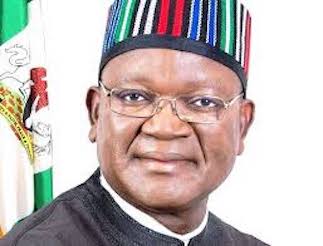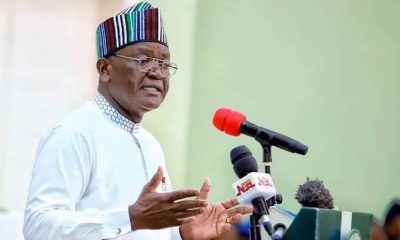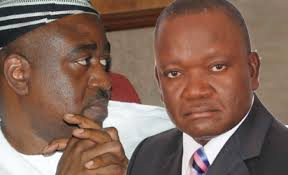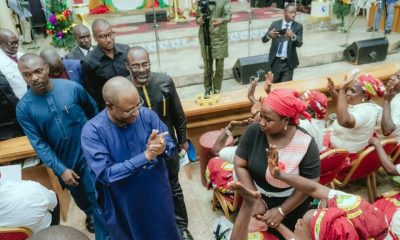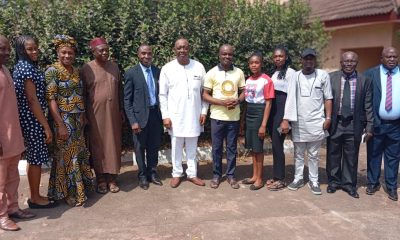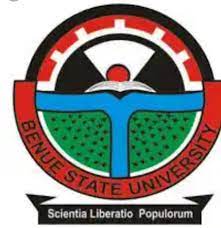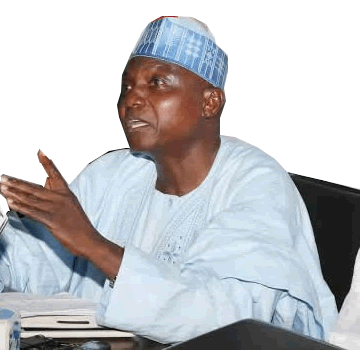OPINION
‘G-5 GOVERNORS,’ 2023 AND ORTOM’S NOVEL “BOTTOM TO TOP” MANTRA
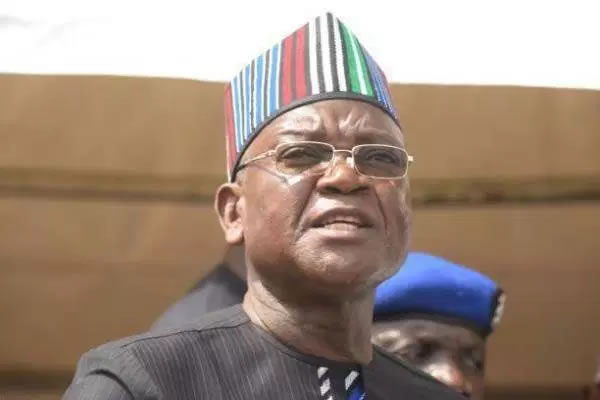
By Tunde Olusunle
Two incidents in the not too distant past, mitigated my physical participation in open-field, free-to-air political events, notably rallies and conventions, in recent times. At a rally of the Peoples’ Democratic Party, (PDP), in Lokoja, the Kogi State capital years ago, I left the venue of the event, relatively lighter than I went.
My prized mobile phone had been pinched from the pocket of my national dress I donned to the event. It was an experience I had never had. With most of us almost wholly dependent on our electronic gadgets for day-to-day functionality, I felt like an orphan having been so criminally dispossessed of my device, for 24 subsequent hours. This was the time span between the pilferage of the equipment, and its eventual replacement. The second experience occurred as I queued to access Eagle Square, Abuja for the convention of the same party in 2017. I least imagined that the wad of currency notes I supposedly secured in one of the less visible pockets of my smart dress, could be so neatly, albeit criminally accessed!
On the recent invitation of the much-misunderstood governor of Benue State, Samuel Ioraer Ortom, however, I broke my subsisting self-censorship. I honoured the flag-off of the Benue State PDP campaigns, held in Makurdi the state capital, on Monday November 7, 2022. Candidates of the PDP contesting for various positions, at all levels in the February and March 2023 polls, were to be formally presented to the PDP family in the state. My longstanding friend and brother, Tivlumun Nyitse, Chief of Staff to Ortom, was the ideal host, on behalf of his Principal.
The pre-event sensitisation was massive. Ortom’s colleagues, who have come to be known as the “G-5,” or the “Integrity Group” as they are interchangeably referred to, in contemporary political discourse, were to headline the event. Nyesom Wike, Seyi Makinde, Okezie Ikpeazu and Ifeanyi Ugwuanyi of Rivers, Oyo, Abia and Enugu respectively, would be storming the “Food basket of the nation,” the legend of Benue State, for the programme. They were coming to stir the Benue river, calmer now than weeks ago when its flooded banks chased the people from their homes and farmlands. The quintet have been vocal and unanimous in speaking up against issues they consider unjust and unfair, in the current structure and operations of their party, vowing never to back-down until their demands are addressed. The issues are public knowledge, and need no rehashing.
The airport at the typically sleepy “Nigerian Airforce Base,” Makurdi, came alive in the evening of Sunday November 6, 2022. Four private jets, each conveying Ortom’s guests, lit up the concreted face of the typically snoozing tarmac. Chief host Ortom would settle his guests in at the recently rehabilitated “Aper Aku” Lodge in Government House, christened after the Second Republic governor of the state. Aku is credited with several multi-sectoral innovations, during his short lived four year term in office. Aper Aku Lodge is an innocuous, yet voluptuous complex with about 25 rooms, backing the Presidential Lodge within the Government House. After dinner with his guests in his own section of the Government House behemoth, Ortom -led his guests on a short walk to the “Banquet Hall” for a reception.
Benue State’s well-known affluent culture was on display. Dances and performances from the major ethnicities in the state, the “Tiv,” “Idoma,” “Igede” and “Agatu,” featured at the event. Ortom’s August guests responded by nodding their heads to the rhythms of music and the footwork of performances, intermittently applauding the performers. Ortom proclaimed the adoption of his guests as *honorary citizens* of Benue State, requesting that the proclamation be recorded in relevant instruments of the government. Wike, Ikpeazu, Makinde and Ugwuanyi were subsequently robed in traditional Tiv attires, complete with ceremonial spears. They took to the dais themselves, and shuffled to the rhythms and songs.
Ortom’s guests woke up the next morning, to a tour and simultaneous commissioning of projects in the state capital and its environs. It was an opportunity for Ortom to beam to the world, some of the infrastructures he had developed for his people. “Dr,” he called me as we chatted, “I find it amusing when people accuse me of not building even a simple bathroom in all my years as governor. I think it’s because I’m media shy. My upbringing and religious inclination, also forbid my blowing my own trumpet.” Ortom continued: “Again, I’m by nature a frugal person. If I reckon that the cost of commissioning a particular project can help us build a culvert somewhere, or a borehole elsewhere, that is more important to me than the fanfare of showcasing things we’ve already put in place.” And Ortom does have a commendable collage of infrastructures to flaunt before the eyes of his August guests and constituents, variously.
They include: The 9.4 kilometre “Tse Poor- Mbakya-Apir road and electricity project,” named after first ever Speaker of the Benue State House of Assembly Ayua Num, which was commissioned by Wike. The 7.7 kilometre “Tse Poor-Mbanima-Yaikyo road and electricity facility” named after Sule Abenga, the late “Ter Makurdi,” was commissioned by Ugwanyi, while the 3.2 kilometre *NKST- Yina- George Akume” road named after the charismatic Joseph Waku, a prominent Tiv leader, was commissioned by Makinde.
A two-kilometre Kaange Akaya- Lucy Aluor- Otukpo road, christened after Wike, was commissioned by Ortom’s predecessor, Gabriel Suswam, who is now a Senator. The two kilometre road runs behind the Commissioners’ Quarters in Makurdi, the state capital. Instructively, the road leads to the residence of Iyorchia Ayu, Chairman of the PDP, with whom the “G-5” have been in the trenches for six months now. This is not overlooking the one and half kilometre “Low Cost Housing Estate-Banban road,” named after Chief JC Obande, a revered Idoma leader, which was also commissioned on the same day.
The “IBB Square,” Makurdi, named after Nigeria’s former military President, Ibrahim Badamasi Babangida is the equivalent of Abuja’s “Eagle Square” and the prime open-air events arena in the state. It was packed full and overflowing into adjoining streets as early as 10am, Monday November 7, even when the city’s ears were yet tingling to the fusion jazz of car honks and sirens, as Ortom and his guests toured various project sites. It was a carnival of PDP colours, a convergence of political greats who headline the politics of the state, and indeed the North Central geopolitical zone.
The “VIP” section of the events place, had a pleasant challenge, contending with the visiting governors, and the “Who’s Who” in Benue State politics. Except for a very prominent political figure in the state and in Nigeria, former President of the Senate, David Mark who is bereaved, and Ayu, still in the eye of the storm, the roll call was as comprehensive as it was astounding.
The sun was sky-high and blistering, foreheads and faces dripping with grime and perspiration. But these were no deterrents to mammoth assemblage at the Square. Beginning with Ortom’s beautiful and indefatigable wife, Eunice, dignitaries at the event included the deputy governor of the state, the immensely humble and unassuming Benson Abounu. Suswam and his senator colleagues from the state, Emmanuel Orker-Jev and Abba Moro, respectively, were in attendance. Ortom is contesting for the senatorial seat of Benue North West, as he concludes his two terms as governor, May 29, 2023. To this extent, he is a candidate. Serving members and intending candidates of the lower national parliament, notably Richard Gbande, Robert Tyough, Julius Atorough, Benjamin Mzondu, Terkaa Agba, Ukah Emmanuel and John Dyegh, were present. Samson Okwu, Aida Nath Ogwuche, Alex Ogbe and Ojotu Ojema, attended the event.
Member of the PDP Board of Trustees, (BOT), Margaret Icheen, acting Chairman of the party in the state, Isaac Mffo and his colleagues in the State Working Committee, were in full attendance. So were members of the Benue State PDP Campaign Management Committee, led by Cletus Tyokyaa. Gubernatorial flagbearer of the PDP in the 2023 election, Titus Uba and his running mate, John Ngbede, featured at the programme. Elder statesman and former Minister of the Federal Republic, Iyorwuese Hagher, and former presidential aide, Mike Mku, equally found time to grace the rally.
Speaker after speaker restated the imperative for all hands to be on deck for the decisive ouster of the seven and half year old regime of the All Progressives Congress, (APC), which has irreparably traumatised Nigeria. Ortom deployed the opportunity to recast the 2015 electioneering slogan by erstwhile APC flagbearer Muhammadu Buhari, Nigeria’s outgoing President. Buhari had intoned in his now famous backlash of a speech at the time, that the “APC will take Nigeria from top to bottom!” Sadly, Buhari’s underwhelming performance over the years, has given a new meaning to that evergreen utterance. It has been interpreted in contemporary political disputation to imply his prophetic resolve to take Nigeria literally from socioeconomic ascendancy, to the valley of all-round poverty, destitution and ignominy.
Ortom’s new mantra proposes a “bottom to top” political prototype.
This anticipates the holistic triumph of the PDP at all levels, beginning from the polling units, through the wards, to the local government areas, onwards to the state, and the federal level. To this extent, the PDP will work towards excelling from the offices of councillors, through local government chairmen, to state assembly members, to federal parliamentarians, to the governorship, and onwards to the presidency. In doing so, Ortom restated that the PDP will not kick away the ropes and ladders with which it sought and received support for ascent to the mountain top. Everyone, every structure from the minutest levels will receive adequate shelter and accommodation under the infinite umbrella of the PDP. Development and dividends of democracy will be fairly apportioned.
Those who expected brickbats and missile-hurling at the event, against the backdrop of the subsisting bad blood between the G-5 and the larger PDP, were most probably disappointed. While expressing his disaffection with the management of rifts and schism within his party, a very realistic Ortom admonished people to vote for their preferred candidates and parties in the coming polls. This must have arisen from his recognition of the dispositions of other party leaders and stakeholders in the state, who have affinity with candidates, different from his preference, especially at the presidential level. A window for possible rapprochement to the subsisting intra-party impasse in the PDP, was opened last Wednesday, when the *G-5* visited Bauchi State governor, Bala Mohammed. Wike spoke on behalf of his colleagues, to the effect that his faction remains open to dialogue and reintegration.
A meeting was reportedly held by Babangida, yesterday which featured Atiku, Aliyu Mohammed Gusau, Okowa, Aminu Tambuwal and former governors Olagunsoye Oyinlola, Bonnie Haruna, Babangida Aliyu, Sule Lamido, Emeka Ihedioha, among others. It may be the eventual olive branch in the mitigation of the subsisting, long-drawn saga. The PDP realises the imperative of confronting the 2023 test as one united family, and will stop at nothing to secure the buy-in of every relevant stakeholder. The APC has adorned itself with ample inflammable oil for comprehensive barbecuing in the 2023 polls. Even at that, the PDP will do better as an undivided, indivisible “combat unit,” to deploy a military terminology.
Tunde Olusunle, PhD, Poet, Journalist, Scholar and Author, is a Member of the Nigerian Guild of Editors, (NGE).
OPINION
Tinubu and the Future of ECOWAS

By Reuben Abati
Two major meetings were held over the weekend that just passed that have implications for the future of the Economic Community of West African States (ECOWAS) and the possible resolution or otherwise of political developments among member-states in the last two to three years, with implications for the future of the sub-regional organisation.
ECOWAS was established in May 1975, when 15 West African states signed the Treaty of Lagos to establish a platform for the promotion of economic integration. This particular treaty was revised on July 24 1993, but the essential purpose of ECOWAS has remained consistent: trade facilitation, free movement of persons and goods, solidarity, promotion of human rights and peace.The sixteenth member joined in 1977, making the membership 16. In addition to its many guidelines and principles, ECOWAS has a general framework which also guides protocols and relations among members. In July 1991, it adopted the Declaration of Political Principles as a cardinal rule, and in 2001, the ECOWAS Supplementary Protocol on Democracy and Good Governance. One of those protocols is the underlying trigger for this commentary, to wit: the principle of customary international law enshrined in Article 2 (4) of the 1945 UN Charter which binds member-states against the use of force as a means of changing governments, in the absence of armed attack or self-defence.
In 1978, ECOWAS signed a protocol on non-aggression against member states and in 1981, members agreed that in the event of any act of aggression against a member, they would come together in mutual self-defence and protect the victim-state to ensure peace, security and stability, by military means if possible and if inevitable, as seen in the interventions of ECOMOG in Liberia (1990) and Sierra Leone (1998). Even the African Union (AU) enabled by its Article 4(h) can be called upon to intervene when the basic protocols have been breached. This however is a slightly complicated area of the subject which we need not bring into this commentary.
What we know is that ECOWAS specifically sees pro-democratic intervention as its bounden duty, but the effectuation of this has been a problem in the sub-region over the years and to cite a recent example, in 2016, when ECOWAS threatened to deploy a standby ECOWAS force in The Gambia to restore the people’s wish if Yahya Jammeh refused to leave office. Jammeh was eased out and a standby force did not have to intervene.
But a turning point came for ECOWAS when the military seized power in Mali in 2020 and 2021, Guinea in 2021, Burkina Faso in 2022, and Niger in July 2023. ECOWAS, with Nigeria’s President Bola Tinubu as Chair, thought it needed to intervene to return these countries to democracy, the rise of military juntas in the sub-region being a threat to democratic consolidation. ECOWAS suspended the states in line with its protocols and proceeded to impose political and economic sanctions. It threatened to deploy troops if it became necessary. This was an act of political miscalculation.
In the four countries, there were civilian protests against ECOWAS, particularly in former French colonies of Burkina Faso, Niger and Mali. The more interesting part of it is that the ECOWAS was accused of being too pro-French. In Burkina Faso, Mali and Niger, the people publicly denounced continued association with France and specifically in Niger, the people openly waved Russian flags and pulled down French flags.
From Senegal to Niger, a wave of rebellion erupted in the former colonies, in what signalled a creeping failure of French relations with its former colonies in Africa. Senegal has had to shut down French military bases to assert its sovereignty, in Burkina Faso the military junta revoked gold permits that had been awarded to French companies, in Niger, the government similarly cancelled the mining permit of Orano, the French nuclear producer that runs the uranium mines in that country.
In addition, Niger revoked its tax co-operation treaties with France as also did Mali, which broke off from its defence accord with France, and its 11 colonial agreements with the former overlord. In the vacuum created by these new realities, Russia and its Wagner group became the favourite partner of former French colonies in West Africa. The Sahel region has been a hotbed of violence and terrorism and naturally, there were concerns about the implications of the presence of Russia and Wagner in the sub-region and the festering anti-West sentiments in the backyard of ECOWAS members. ECOWAS eventually had to review its threat of sanctions, and military action and adopted the options of diplomacy and dialogue.
This achieved little or nothing. In January 2024, Burkina Faso, Mali and Niger announced their decision to quit ECOWAS. They formed the Alliance of Sahel States (AES) as their own confederation as an alternative to ECOWAS. Their departure under Article 91 of the Revised ECOWAS Treaty would become effective on January 29, 2025. The resort to diplomacy, an afterthought by ECOWAS also yielded no results. In July, ECOWAS appointed President Bassirou Faye of Senegal as the mediator with the aggrieved countries. President Faure Gnassingbe of Togo was also sent on diplomatic shuttles to Niger. President Tinubu as ECOWAS Chairman, also sent other envoys to the Sahel.
Barely a month before the January deadline, there was a meeting of Ministers of Burkina Faso, Niger and Mali in Niamey last Saturday, December 14, where they reiterated that the departure of the three countries from ECOWAS, effective January 29, 2025, is “irreversible.” They however also resolved that the three countries would remain visa-free for all ECOWAS countries after the exit. While the latter resolution may alleviate fears about the free movement of goods and services, there is still the residual challenge of insecurity in the Sahel and the threat of a further tumultuous season in that part of West Africa with wider implications for regional peace.
It is perhaps out of this realisation that the Authority of Heads of State and Governments at its 66th Ordinary Summit last weekend, Sunday, December 15 at the State House in Abuja, decided to vary Article 91 of the Revised Treaty and granted the departing trio an extension of six months from January 29 to July 29. This is basically to create room for further diplomatic negotiations in the hope that the three countries can be brought back into the fold. In Niamey, on Saturday, the AES Ministers still made it clear that ECOWAS leaders are too subservient to France.
Without being specific, they may well have been referring to President Tinubu who recently returned from France where he was treated to a lavish and grand reception by President Emmanuel Macron. It remains to be seen whether the AES would reverse itself. It is a long wait but as certain as daylight, July 29, 2025 would soon be upon us. In the meantime, the ECOWAS Commission has been directed to begin work on the necessary withdrawal formalities, while the mediator continues with last-ditch efforts to keep the dream of the founding fathers of ECOWAS alive, giving the AES an opportunity to have a re-think.
It is further instructive that at the ECOWAS meeting of Heads of States and Governments, President Tinubu, Chairman, took time out to praise the just concluded general elections in Ghana and parliamentary elections in Senegal. He even praised Ghana’s Vice President Mahamudu Bawumia of the ruling New Patriotic Party (NPP) who conceded defeat to the candidate of the opposition, President John Mahama of the National Democratic Congress (NDC). He praised the government and people of Ghana for their maturity. This was a subtle dig at the leaders of the West African countries where the military chose to resort to force and aggression. Without a doubt, the rise of military juntas poses a threat to democracy in West Africa and peace in the region. The romance of the juntas with Russia and China dangerously positions the region as a territory for proxy conflicts among major Western powers. It is an ill-wind. ECOWAS needs to do more to persuade the errant countries to restore constitutional order. The leaders also need to reinvent and retool the organisation.
By next July, it will be 50 years since ECOWAS was established. It would be pertinent to ask: how has the body fared? Has it so far fulfilled the ambitions of its founding fathers? Today, only one of those leaders who established ECOWAS in 1975 is still alive. Would General Yakubu Gowon of Nigeria be proud of what ECOWAS has become? What are the challenges facing the body? How can it be reformed? Mutual suspicion among the various blocs: Anglophone, Francophone and Lusophone has been a major issue for ECOWAS: how can the goal of integration be better realised? In 50 years, whatever the challenges may have been, it can be said that ECOWAS has been pivotal in forging cooperation, integration and trade within the region. ECOWAS in 2010 adopted Vision 2020, and also later a Vision 2050 roadmap to deepen the original objectives of the association.
There may have been challenges: insecurity in the Sahel, Boko Haram in the Lake Chad Basin, Ebola, COVID-19 and the emergent threat of military juntas, but on the whole, the main achievements of the body deserve to be celebrated. ECOWAS fought to restore peace in Liberia and Sierra Leone, and has been vocal in insisting on good governance. There are hitches in person-to-person relations within the body, over trade, commerce and space, but the free movement of goods and services has been largely beneficial. ECOWAS ranks probably as the most successful regional economic bloc in the continent, in terms of conflict management.
But ECOWAS has lost steam. It needs re-organisation. It is unfortunate that the same ECOWAS that acted decisively in Liberia, Sierra Leone and The Gambia is now the same body that is now being treated scornfully by a group of military adventurists who have reversed democratic progress in the Sahel. Their effrontery is fuelled by the descent into poverty and anomie in their countries. The clamour for change that compelled the people of Burkina Faso, Mali, Guinea and Niger to embrace the military is simply their frustration with the leaders in those countries. The people seek change and they embrace it in whatever shape it presents itself, with high expectations too, because they no longer trust their leaders who have alienated them and placed a greater accent on their own elite well-being rather than the common good for the people’s benefit.
The people are led by persons who promote injustice, inequality, and nepotism. They rig elections and do not allow the people’s votes to count. When the military intervenes, the people see the intervention as a form of liberation from the shackles of oppression. In Burkina Faso, Niger and Mali, they trooped to the streets in jubilation, almost like the situation today in Syria with the fall of Bashar Assad and the Assad dynasty, one of the most murderous ruling houses in the Middle East which clung to power for 54 years. In Mali in August 2020, when Mali’s President Ibrahim Boubacar Keita was removed in a military coup over allegations of corruption, fraud and electoral violence, the people were joyous. They carried placards saying “This isn’t a coup. It is a Revolution”. There was yet another coup in May 2021. Similarly in Niger in 2023, thousands of people gathered to hail the generals who led the coup in that country. The urgent matter that West Africa needs to resolve is the challenge of good leadership and governance.
There is a need at the organisational level for a re-dedication to the ideals of ECOWAS, and to develop a higher sense of belonging among the member-states and the over 420 million people that make up the region. As ECOWAS steps into its 50th year, it is in urgent need of reform and we need to see the members being faithful. At the last meeting of the ECOWAS Authority of Heads of States and Governments, Omar Alieu Touray, President of the ECOWAS Commission, commended Nigeria for having paid up its community levies for 2023, with the 2024 levy paid up to July this year. He advised other member states to emulate Nigeria’s example. I guess it has become a habit among ECOWAS members to allow Nigeria to do the heavy lifting in terms of funding while others tag along and yet enjoy the benefits of membership.
It is important that all parties pay their levies as and when due. The various structures of the body must be overhauled to ensure equity and deepen trade facilitation. The ideals of free movement of persons across the region should be enhanced. It must be possible for any national of an ECOWAS state to live and work in any of the member states without being subjected to undue discrimination or harassment. The celebration of ECOWAS at 50 must be an occasion for sober reflection and renewal. President Bola Tinubu was elected for a second term as chairman of ECOWAS in July 2024. He would preside over the 50th-anniversary celebrations before handing over the seat in July 2025. He may have listed some of his achievements as ECOWAS chairman at the 66th Ordinary session in Abuja; he would be required to give a fuller account of his tenure and the status of ECOWAS as part of the 50th anniversary. There is a lot more that can be done.
OPINION
Still on State Police
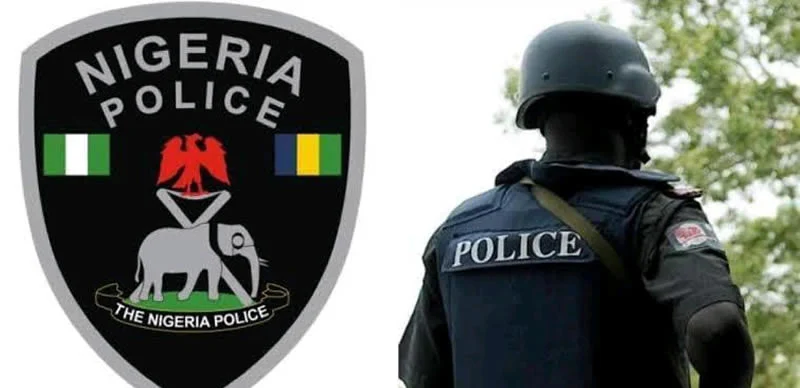
By Dakuku Peterside
When a policy fails to factor in public response to its benefits and drawbacks, success takes the backseat. Ignoring public behaviour often results in poor implementation and unintended consequences.
In Nigeria, a nation grappling with complex and diverse security challenges, the limitations of centralised policing have become glaringly evident.
Rising crime rates, from terrorism and banditry to cybercrime and kidnapping, expose the inadequacies of the current federal system. The call for state police is not just a matter of political discourse; it is a necessary step toward securing the lives and property of Nigerians.This proposal has gained unprecedented traction across regional and political divides, signalling that the time is ripe for this crucial reform.
The urgency of decentralising policing by introducing state police could provide the much-needed local focus to counter insecurity while fostering accountability and community trust. This vision aligns with global best practices and offers hope for a safer and more prosperous Nigeria, where localised and specialised law enforcement can effectively address the diverse security needs of the population.Throughout history, nations have recognised the need for adaptable and localised law enforcement structures. In the early 20th century, the United States established state police forces to address rising crime and extend law enforcement beyond the capabilities of local authorities. The Pennsylvania State Police, formed in 1905, became the first uniformed state law enforcement agency in the U.S., designed to handle challenges that local sheriffs and municipal officers could not adequately address. This included labour unrest in coal mines and maintaining order in rural areas without sufficient local law enforcement. Over time, state police forces such as the Texas Rangers and California Highway Patrol expanded their scope, dealing with issues from highway safety to organised crime. These forces were pivotal in ensuring law enforcement matched the complexities of an industrialising and urbanising society.
The U.S. experience provides a critical lesson for Nigeria: decentralisation enhances law enforcement’s ability to respond to local needs. For instance, during the Prohibition era, state police units were instrumental in curbing illicit alcohol trade in their jurisdictions, a task federal authorities alone needed help to handle effectively. Similarly, the adaptability of state police allowed them to pioneer specialised units, such as cybercrime task forces in recent decades, which have become crucial in tackling modern criminal activities.
Nigeria’s security challenges, including insurgencies in the North and urban crimes in Lagos and Abuja, could greatly benefit from similar localised and specialised approaches. For instance, a state police unit in Lagos could prioritise urban crimes such as theft and traffic-related offences, while a unit in Borno might focus on counterterrorism efforts against Boko Haram insurgents. This targeted approach could lead to more effective solutions than a one-size-fits-all federal system.
Globally, decentralised policing systems offer valuable lessons. Countries like Canada, India, and South Africa demonstrate how local accountability and responsiveness enhance security. Canada’s provincial police forces work collaboratively with municipal and federal agencies to address diverse security needs. In India, state police forces are indispensable in combating localised crimes and maintaining law and order, especially in states with unique cultural and geographical contexts.
For example, Maharashtra’s state police in India have implemented technology-driven initiatives to combat cybercrime, which would be impossible under a rigid centralised system. These systems are bolstered by robust oversight mechanisms to prevent misuse, ensuring their effectiveness and integrity. Nigeria can draw inspiration from these examples, adapting these practices to suit its unique challenges. This global perspective further strengthens the argument for the state police proposal in Nigeria.
The current structure of Nigeria’s federal police reveals its limitations. With approximately 370,000 officers, the police-citizen ratio is about 1:650, significantly higher than the UN-recommended ratio of 1:450. This shortfall is glaring in a nation of over 220 million people, where security challenges vary dramatically across geopolitical zones. The Inspector-General of Police has highlighted the need for an additional 190,000 personnel, yet estimates suggest that Nigeria requires up to 2.5 million officers for effective policing. Over the past decade, crime rates have surged by over 30%, with kidnapping, banditry, terrorism, and cybercrime becoming increasingly sophisticated and prevalent. In 2022 alone, there were over 3,500 reported kidnapping incidents nationwide, underlining the urgent need for localised and agile policing responses. The introduction of state police could help address this issue by allowing for a more targeted allocation of resources based on regional security needs, potentially improving the police-citizen ratio and overall security.
Support for state police has grown significantly among policymakers, security experts, and civil society groups. A growing consensus is that decentralising policing would empower local authorities and enhance operational efficiency. Even state governors from historically divided northern and southern regions have united in supporting state police. One significant highlight of the 147th National Economic Council (NEC) is a new consensus by all state governments on establishing state police. However, this initiative requires a more robust but speedy engagement to align it with the local cultural context, ensuring that it is appreciated and supported by the citizens it aims to serve. Citizen engagement is not just a formality, but a crucial step to ensure public understanding and support for the state police proposal.
Building trust between state police and local communities is a crucial advantage of this reform. Effective local policing initiatives can foster relationships that build trust and cooperation, especially in Nigeria, where the trust deficit is high. Trust is an essential component of crime fighting. Innovative local community-police liaison arrangements and other community-focused programs can strengthen these ties, creating an environment of mutual respect and collaboration. When police officers understand their communities’ cultural and societal dynamics, they are better equipped to address security challenges and maintain peace. The active participation and trust of the Nigerian public in this reform process are crucial for its success.
Concerns about the potential misuse of state police for political purposes are valid but can be systematically addressed. Abuse of State Independent Electoral Commissions (SIEC) by state governors is often cited. This is another reason why extensive and targeted citizen engagement is key before putting the law in place. Safeguards must be designed and implemented to prevent governors from exploiting state police for political and electoral manipulation purposes, personal gain, or to feed their authoritarian appetite.
Laws prohibiting state police involvement in electoral matters and empowering oversight bodies can ensure neutrality. Clear delineation of the roles and responsibilities of state and federal police will also be essential to avoid jurisdictional conflicts. Establishing a framework for collaboration and information-sharing between the two levels of law enforcement will further enhance effectiveness. However, these measures will require careful planning and execution to ensure their efficacy and address potential challenges such as resistance to change and extensive training and capacity building.
Independent regulatory bodies are critical to ensuring accountability and preventing abuse. A State Police Security Commission (SPSC), comprising representatives from civil society, established professional bodies, legal experts, and public security professionals, could oversee state police operations. Regular audits and public reporting ensure transparency. Additionally, a robust judiciary is essential to protect citizens from potential abuses. Judicial reforms that enhance the independence and efficiency of courts would be vital in supporting this transition. For instance, in Canada, provincial ombudspersons have played pivotal roles in monitoring police misconduct, providing Nigeria with a possible blueprint for ensuring accountability.
Strengthening relationships between police and communities through genuine engagement and collaborative problem-solving must remain a priority. Establishing community advisory boards can provide platforms for dialogue and accountability. Actionable trust-building initiatives, such as open-door policies and periodic town hall meetings, should replace superficial slogans like “Police is your friend.”
Addressing insecurity also requires holistic solutions. Investments in education, healthcare, and youth empowerment are essential for tackling the root causes of crime. Integrating vocational training and social services into crime prevention strategies would complement policing reforms, creating a foundation for sustainable security. For example, a similar approach in India’s Kerala state led to a 40% reduction in youth crime over a decade.
Introducing state police in Nigeria represents a transformative opportunity to address the nation’s security crisis. While challenges are inevitable, they should not deter progress. Beginning the decentralisation process will allow for the identification and resolution of potential issues as they arise. The widespread consensus around reforming Nigeria’s policing architecture underscores the urgency of this change. With proper safeguards, political will, and public support, state police can become a cornerstone of a more secure, equitable, and prosperous Nigeria.
A prerequisite is the government’s robust public engagement and orientation programme to get the complete buy-in of all stakeholders, including the National Assembly, the state assembly and the masses. The time to act is now, and this reform must be embraced as a step toward a brighter and safer future for all Nigerians. Establishing state police would signify a shift in policy and a bold reimagining of Nigeria’s approach to security—one that prioritises the people, respects regional diversity, and lays the foundation for sustainable peace and progress.
OPINION
A Reflection on Daily Trust’s Tension with Tinubu

By Farooq Kperogi
As a media scholar who engages with Nigeria’s media landscape from the safe yet impassioned perch of the diaspora, I have found 2024 to be particularly illuminating in the annals of government-media relations. It presented a study in tension, turmoil, and eventual catharsis.
If the media is society’s mirror, then its cracks often reveal not just distortions but deeper fissures in the polity it reflects.
And nowhere was this more evident than in the July 4 report by Daily Trust, which set the Nigerian public sphere ablaze with moral indignation and, in a twist befitting a Greek tragedy, threatened lives.The Daily Trust report in question bore the sensational headline: “LGBT: Nigeria Signs $150 Billion Samoa Deal.
” In one fell swoop, it conjured a narrative wherein the Bola Ahmed Tinubu administration had purportedly traded Nigeria’s moral sanctity for European coffers flush with foreign currency. It was a claim unburdened by evidence but rich with emotional currency.In its aftermath, it left ripples of moral panic, social turbulence, and political fallout, especially in the Muslim North where issues bordering on religious morality inflame our passions and mentally transport us to celestial realms.
Clerics swiftly mobilized their pulpits and invoked ominous maledictions. Their invocations of divine ire resonated not only within mosques but deep into the social sinews of a people already hampered by mistrust.
Prominent Northerners in the Tinubu administration became objects of incendiary wrath, targets of whispered curses and objects of overt death threats. Family members became collateral damage in this frenzy.
As I pointed out in my July 6, 2024, column titled “LGBTQ Storm in $150 Billion Samoa Deal Teacup,” what Daily Trust did exemplified the literary and journalistic sin of circular reporting, a rhetorical sleight-of-hand where unsuspecting people are fed with false information, made to spout it back, which then gets established as the source of the information.
Alex Haley’s Roots is one of the most prominent examples of circular reporting. Haley’s wildly celebrated epic, initially marketed as historical truth about the life of Kunta Kinte, an 18th-century Mandinka who was captured and sold into slavery in America, was later unmasked as a potpourri of embellished fiction and poorly-sourced “facts.”
In his eagerness to find validation, Haley planted narratives into the mouths of griots in the Gambia, only to repackage their guided, predetermined responses as original confirmation of his fabricated story.
In a parallel act, Daily Trust ignited outrage by feeding its sources erroneous claims about the Samoa Agreement, then turned their emotionally charged responses into a “story”—a journalistic ouroboros swallowing its own tail.
Yet unlike Haley’s indulgence in narrative fiction, Daily Trust’s misstep wasn’t victimless. It carried real and immediate consequences: Vice President Kashim Shettima, the son of a revered Maiduguri Islamic scholar, and Nuhu Ribadu, scion of a distinguished Adamawa family with deep Islamic roots, became unwilling lightning rods for holy vitriol.
Minister of Information Mohammed Idris, himself a bridge between Nupe and Fulani Muslim cultures, found himself straddling a tempest from all corners. All northern Muslims in the Tinubu administration became objects of unappeasable fury.
The Minister’s Delicate Maneuver
Confronted with this escalating storm, Information Minister Mohammed Idris exhibited both restraint and strategic acumen. It would have been easy, even tempting, to unleash the full punitive might of the state upon Daily Trust.
After all, if recent history is any guide, Nigerian courts beckon eagerly to governments eager for retribution. Yet Idris wisely chose not to enter the arena of litigation, where victors are often the defeated in the court of public opinion. To sue would have been to martyr the newspaper, inflame its supporters, and escalate the matter beyond the bounds of reason.
Instead, Idris turned to a tool of elegant resolve: the National Media Complaints Commission (NMCC), Nigeria’s fledgling experiment in self-regulation. Incidentally, it is a forum that was conceived, in a delicious twist of fate, by none other than Idris himself (as publisher of Blueprint, an Abuja-based daily) alongside Media Trust’s Chairman, Malam Kabiru Yusuf.
Together, in the more harmonious days of 2021, after Yusuf’s and Idris’ December 2020 election as chairman and general secretary respectively of the Newspapers Publishers Association of Nigeria (NPAN), they planted the seeds of this Ombudsman, a voluntary watchdog designed to enforce media ethics with an invisible hand.
By July 8, Idris’ ministry formally petitioned the NMCC, requesting an inquiry into Daily Trust’s reckless reportorial infraction that endangered the lives of people in government. It demanded a retraction, an apology, and stricter editorial safeguards against future transgressions.
The NMCC, under the leadership of Emeka Izeze, former MD of the Guardian and widely admired figure in Nigerian journalism, undertook its task with measured diligence. On September 23, the commission issued a 19-page report that cut through the fog of misinformation.
The commission found that although earlier versions of the Samoa Agreement did include provisions for the protection of sexual minorities and marginal gender identities (which many countries, including Nigeria, had rejected), the final 403-page agreement that Nigeria signed did not require any commitments on the part of countries that signed the agreement to codify LGBTQ rights in their law books.
The NMCC’s findings were refreshingly even-handed: while Daily Trust was found guilty of violating Article 2.1 of the Revised Code of Journalism Ethics—a clause that enshrines accuracy as the bedrock of reporting—the commission gently admonished the government for its opacity surrounding the Samoa Agreement. Transparency, it suggested, would have preempted much of the hysteria.
Thus, the judgment did more than hold a newspaper accountable; it underlined an eternal truth about public trust: opacity begets speculation and speculation births chaos.
A Redemption through Humility
On October 2, 2024, Daily Trust rose to the moment with an unreserved apology: “We accept the verdict of the NMCC without equivocation… We apologize to the Federal Government for any inconvenience the story might have caused.”
In the apology, Daily Trust commended the “thorough and professional approach” of the National Media Complaints Commission (NMCC) and expressed gratitude to Information Minister Mohammed Idris “for his professional and democratic approach to this incident.”
In its humility, Daily Trust not only mended fences with its readership but also fortified its credibility. Self-correction is not a weakness but the wellspring of enduring strength.
After all, as the New York Times demonstrated when it corrected a 161-year-old error in 2014, the integrity of any news organization lies not in its infallibility but in its courage to admit when it stumbles. To err may be human, but to apologize—and to do so with grace—is the hallmark of institutional maturity.
Lessons Learned: Self-Regulation as Democratic Vigilance
This episode is a timely moral tale for Nigeria’s democracy and media ecosystem. For too long, the relationship between Nigerian governments and the media has oscillated between adversarial hostility and co-opted complicity.
This case reveals the potential for a middle path, that is, a relationship characterized by accountability without authoritarianism, and freedom tempered by responsibility.
The NMCC’s successful arbitration places Nigeria alongside countries like the United Kingdom, where the Independent Press Standards Organisation (IPSO) maintains order in the wake of scandal; Germany, where the Deutscher Presserat enforces rigor; South Africa, whose Press Council safeguards post-apartheid press freedoms; and several other examples.
As Thomas Jefferson once wrote, “The only security of all is in a free press.” But press freedom, like all freedoms, carries obligations—chief among them the pursuit of truth. To borrow Edmund Burke’s metaphor of the Fourth Estate, if journalists sit atop their watchtower as society’s sentinels, they must keep their eyes unclouded by haste, bias, or error.
In the final analysis, both Minister Idris and Daily Trust deserve commendation for their conduct. The minister’s refusal to wield the bludgeon of state power speaks to his understanding of democracy’s delicate balance.
Daily Trust’s forthright apology reaffirms its place as an honorable newspaper committed to ethical journalism, even when it falters like we all do.
Errors, after all, are the cracked kegs of palm wine through which wisdom occasionally trickles. It is what we do with the lessons—how we patch the cracks and safeguard against future spills—that determines whether we remain custodians of public trust or mere peddlers of ink-stained chaos.
This case tells us that the relationship between the government and the media need not always be a drumbeat of conflict; it can, when guided by mechanisms like the NMCC, achieve the harmony of a well-tuned orchestra where every note serves the greater good of truth, transparency, and trust.
In 2024, Nigeria glimpsed that harmony.

